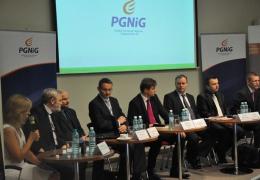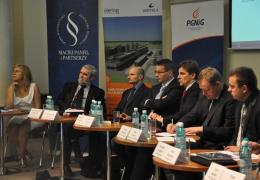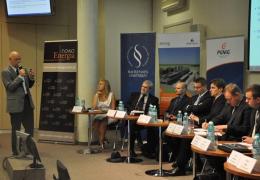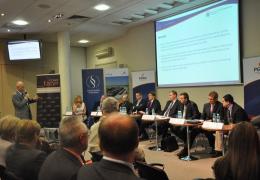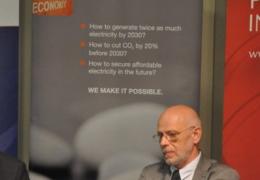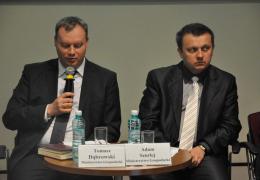Investments in peak, intervention and regulatory powers till 2020
13th July 2012 (Friday), 11 am – 2 pm, Seat of „Polityka”, Słupecka 6, Warsaw
Honorary Patronage: Energy Regulatory Office
Strategic Partner: PGNiG SA
Event Partner: Wärtsilä
Problem with reserve powers in Poland may aggravate, mostly due to development of RES that deliver energy on an unstable basis. In case of windmill farms it is caused by windless days, in case o photovoltaic panels by cloudy weather. Such interrupted work cycles may seriously disrupt functioning of the domestic energy system when several hundreds of MW of power are lost due to changing weather conditions. Rising amount of RES will undoubtedly disequilibrate the system even more. In order to keep the right and safe balance it is necessary to launch new power sources which would be capable of a quick start up. As an ideal solution would serve hydro and pump-storage power plants. Unfortunately due to high costs of operation and specific locations they may be used only in certain circumstances. Thus gas engines and turbines seems to be a natural and attractive alternative. Gas power plants might also be used as peak power plants to balance the domestic energy system in the times of peak power strong demand. Their main advantage lies in their reserve potential – most of the time they will remain on a stand-by mode, ready to start in short time. However, this means that power produced in such power plants would be very expensive – in order to produce small volume of energy (generation time ca. 200-300 hours per year) the price would need to include investment cost as well. For this reason investor’s risk would have to be reduced by special solutions such as long-term contract (10-15 years) whose cost would be born by the system operator. In the context of gas power plants crucial issues concern also development of transmission infrastructure and necessary social acceptance for such investments. Do we need new legislation and if yes then what regulations should be implemented? How about new market mechanisms? How much of each of the above mentioned power do we need? Where should they be located, which technologies and fuels used? We asked those questions to speakers invited to the debate.
Speakers who took part in the debate:
- Marek Woszczyk, President of the Energy Regulatory Office
- Tomasz Dąbrowski, Director of the Energy Department, Ministry of Economy
- Adam Szurlej, Department of Oil and Gas, Ministry of Economy
- Radosław Dudziński, Vice Chairman of the Board, PGNiG SA
- Mikko Syrjänen, PhD, General Manager, Strategy and Business Intelligence, Power Plants, Business Development, Wärtsilä Finland Oy
- Jerzy Dudzik, Director of Operation Services Department, PSE Operator
- Piotr Rak, Director of Transmission Department, PSE Operator
- prof. Krzysztof Żmijewski, Warsaw University of Technology
- Leszek Karski, PhD, Associate Dean, Cardinal Stefan Wyszyński University in Warsaw
Main topics of the debate:
- Security of energy system stability regarding development of RES
- Best locations for peak, intervention and regulation power plants with regard to transmission and gas pipeline networks
- Amount of peak power demand in the domestic energy system versus possible investments in peak power generation sources (concept of construction and financing of intervention power plants)
- Intervention power plants on liquid and gas fuels
- System regulation in dispersed energy generation - small power and heat plants working on discontinued mode ( ca. 4000-5000 hours per year) using piston engines and small gas turbines
- Indispensible investments in gas transmission and distribution network in potential locations for peak power plants

